formerly eScholarship Editions


|
|
|
|
Your request for similar items found 20 book(s). | Modify Search | Displaying 1 - 20 of 20 book(s) | |
| 1. | 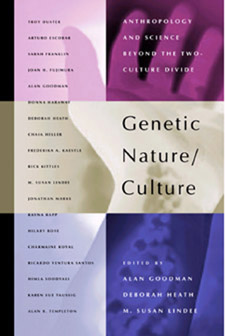 | Title: Genetic nature/culture: anthropology and science beyond the two-culture divide Author: Goodman, Alan H Published: University of California Press, 2003 Subjects: Anthropology | Biology | Sociology Publisher's Description: The so-called science wars pit science against culture, and nowhere is the struggle more contentious - or more fraught with paradox - than in the burgeoning realm of genetics. A constructive response, and a welcome intervention, this volume brings together biological and cultural anthropologists to conduct an interdisciplinary dialogue that provokes and instructs even as it bridges the science/culture divide. Individual essays address issues raised by the science, politics, and history of race, evolution, and identity; genetically modified organisms and genetic diseases; gene work and ethics; and the boundary between humans and animals. The result is an entree to the complicated nexus of questions prompted by the power and importance of genetics and genetic thinking, and the dynamic connections linking culture, biology, nature, and technoscience. The volume offers critical perspectives on science and culture, with contributions that span disciplinary divisions and arguments grounded in both biological perspectives and cultural analysis. An invaluable resource and a provocative introduction to new research and thinking on the uses and study of genetics, Genetic Nature/Culture is a model of fruitful dialogue, presenting the quandaries faced by scholars on both sides of the two-cultures debate. [brief] Similar Items |
| 2. | 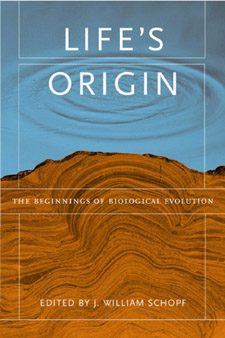 | Title: Life's origin: the beginnings of biological evolution Author: Schopf, J. William 1941- Published: University of California Press, 2002 Subjects: Organismal Biology | Paleontology | Astronomy | Evolution | Earth Sciences | Physical Sciences Publisher's Description: Always a controversial and compelling topic, the origin of life on Earth was considered taboo as an area of inquiry for science as recently as the 1950s. Since then, however, scientists working in this area have made remarkable progress, and an overall picture of how life emerged is coming more clearly into focus. We now know, for example, that the story of life's origin begins not on Earth, but in the interiors of distant stars. This book brings a summary of current research and ideas on life's origin to a wide audience. The contributors, all of whom received the Oparin/Urey Gold Medal of the International Society for the Study of the Origin of Life, are luminaries in the fields of chemistry, paleobiology, and astrobiology, and in these chapters they discuss their life's work: understanding the what, when, and how of the early evolution of life on Earth. Presented in nontechnical language and including a useful glossary of scientific terms, Life's Origin gives a state-of-the-art encapsulation of the fascinating work now being done by scientists as they begin to characterize life as a natural outcome of the evolution of cosmic matter. [brief] Similar Items |
| 3. |  | Title: Evolution of sickness and healing Author: Fabrega, Horacio Published: University of California Press, 1997 Subjects: Medicine | Medical Anthropology Publisher's Description: Evolution of Sickness and Healing is a theoretical work on the grand scale, an original synthesis of many disciplines in social studies of medicine. Looking at human sickness and healing through the lens of evolutionary theory, Horacio Fàbrega, Jr. presents not only the vulnerability to disease and injury but also the need to show and communicate sickness and to seek and provide healing as innate biological traits grounded in evolution. This linking of sickness and healing, as inseparable facets of a unique human adaptation developed during the evolution of the hominid line, offers a new vantage point from which to examine the institution of medicine.To show how this complex, integrated adaptation for sickness and healing lies at the root of medicine, and how it is expressed culturally in relation to the changing historical contingencies of human societies, Fàbrega traces the characteristics of sickness and healing through the early and later stages of social evolution. Besides offering a new conceptual structure and a methodology for analyzing medicine in evolutionary terms, he shows the relevance of this approach and its implications for the social sciences and for medical policy. Health scientists and medical practitioners, along with medical historians, economists, anthropologists, and sociologists, now have the opportunity to consider every essential aspect of medicine within an integrated framework. [brief] Similar Items |
| 4. | 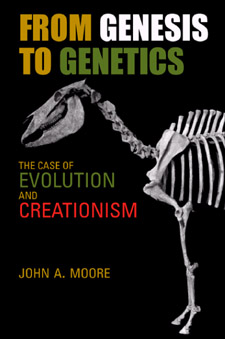 | Title: From Genesis to genetics: the case of evolution and creationism Author: Moore, John Alexander 1915- Published: University of California Press, 2002 Subjects: Science | Christianity | History of Science Publisher's Description: The clash between evolution and creationism is one of the most hotly contested topics in education today. This book, written by one of America's most distinguished science educators, provides essential background information on this difficult and important controversy. Giving a sweeping and balanced historical look at both schools of thought, John A. Moore shows that faith can exist alongside science, that both are essential to human happiness and fulfillment, but that we must support the teaching of science and the scientific method in our nation's schools. This highly informative book will be an invaluable aid for parents, teachers, and lawmakers, as well as for anyone who wants a better understanding of this debate. From Genesis to Genetics shows us why we must free both science and religion to do the good work for which each is uniquely qualified. Using accessible language, Moore describes in depth these two schools of thought. He begins with an analysis of the Genesis story, examines other ancient creation myths, and provides a nuanced discussion of the history of biblical interpretation. After looking at the tenets and historical context of creationism, he presents the history of evolutionary thought, explaining how it was developed, what it means, and why it is such a powerful theory. Moore goes on to discuss the relationship of nineteenth-century religion to Darwinism, examine the historic Scopes trial, and take us up to the current controversy over what to teach in schools. Most important, this book also explores options for avoiding confrontations over this issue in the future. Thoughtfully and powerfully advocating that the teaching of science be kept separate from the teaching of religion, Moore asks us to recognize that a vigorous and effective scientific community is essential to our nation's health, to our leadership role in the world, and to the preservation of a healthy environment. [brief] Similar Items |
| 5. | 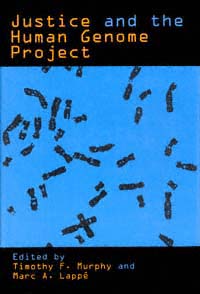 | Title: Justice and the human genome project Author: Murphy, Timothy F 1955- Published: University of California Press, 1994 Subjects: Philosophy | Ethics | Biology | Medicine Publisher's Description: The Human Genome Project is an expensive, ambitious, and controversial attempt to locate and map every one of the approximately 100,000 genes in the human body. If it works, and we are able, for instance, to identify markers for genetic diseases long before they develop, who will have the right to obtain such information? What will be the consequences for health care, health insurance, employability, and research priorities? And, more broadly, how will attitudes toward human differences be affected, morally and socially, by the setting of a genetic "standard"?The compatibility of individual rights and genetic fairness is challenged by the technological possibilities of the future, making it difficult to create an agenda for a "just genetics." Beginning with an account of the utopian dreams and authoritarian tendencies of historical eugenics movements, this book's nine essays probe the potential social uses and abuses of detailed genetic information. Lucid and wide-ranging, these contributions will provoke discussion among bioethicists, legal scholars, and policy makers. [brief] Similar Items |
| 6. | 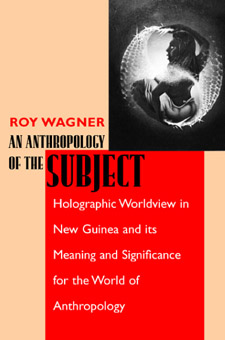 | Title: An anthropology of the subject: holographic worldview in New Guinea and its meaning and significance for the world of anthropology Author: Wagner, Roy Published: University of California Press, 2001 Subjects: Anthropology | Pacific Rim Studies | Geography | Cultural Anthropology | Folklore and Mythology Publisher's Description: An Anthropology of the Subject rounds out the theoretical-philosophical cosmos of one of the twentieth century's most intellectually adventurous anthropologists. Roy Wagner, having turned "culture" and "symbols" inside out (in The Invention of Culture and Symbols That Stand for Themselves, respectively), now does the same for the "subject" and subjectivity. In studying the human subject and the way human culture mirrors itself, Wagner has redefined holography as "the exact equivalence, or comprehensive identity, of part and whole in any human contingency." [brief] Similar Items |
| 7. | 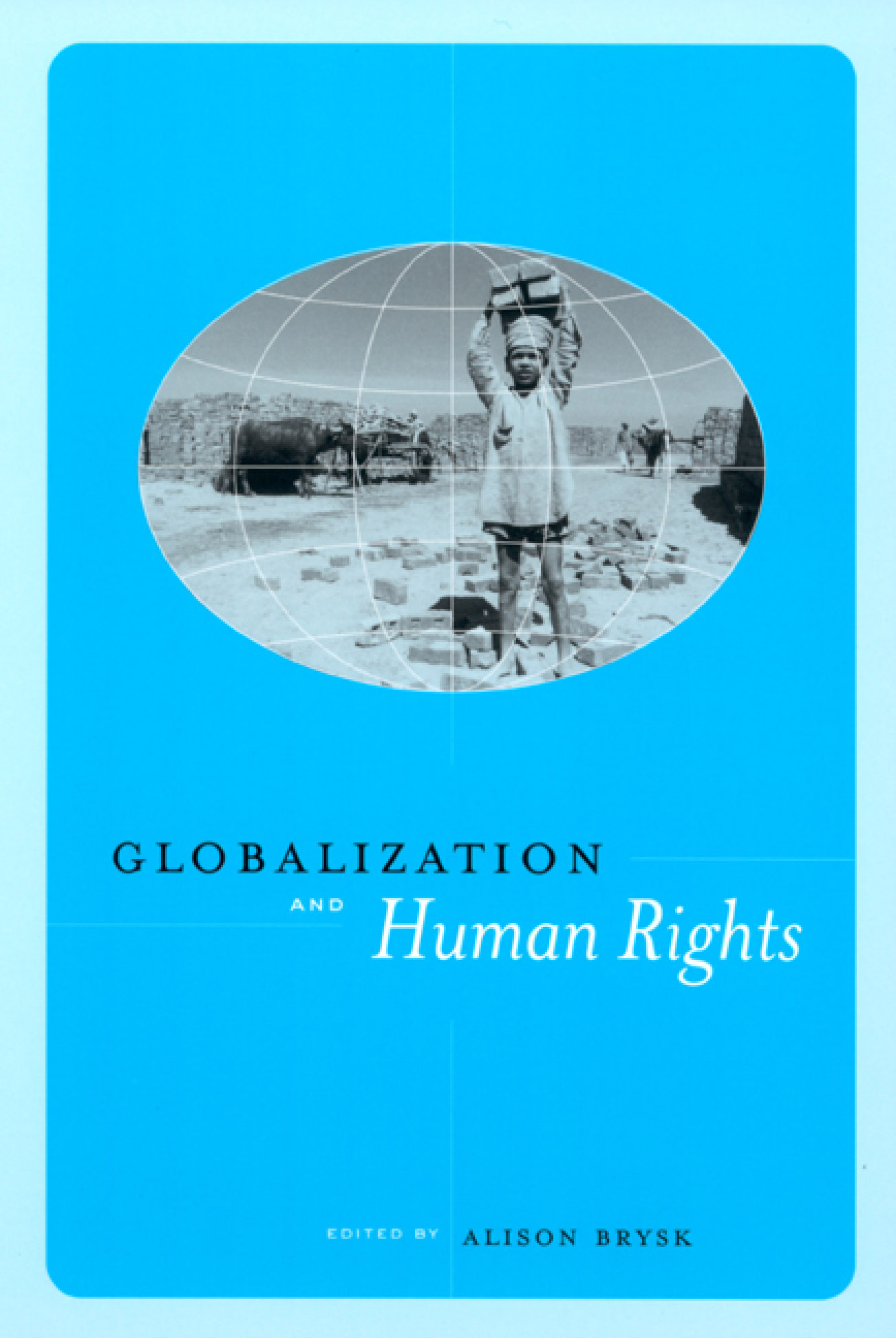 | Title: Globalization and human rights Author: Brysk, Alison 1960- Published: University of California Press, 2002 Subjects: Politics | International Relations Publisher's Description: In this landmark volume, Alison Brysk has assembled an impressive array of scholars to address new questions about globalization and human rights. Is globalization generating both problems and opportunities? Are new problems replacing or intensifying state repression? How effective are new forms of human rights accountability? These essays include theoretical analyses by Richard Falk, Jack Donnelly, and James Rosenau. Chapters on sex tourism, international markets, and communications technology bring new perspectives to emerging issues. The authors investigate places such as the Dominican Republic, Nigeria, and the Philippines. The contemporary world is defined by globalization. While global human rights standards and institutions have been established, assaults on human dignity continue. These essays identify the new challenges to be faced, and suggest new ways to remedy the costs of globalization. [brief] Similar Items |
| 8. | 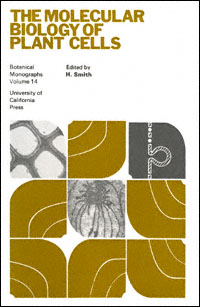 | Title: The molecular biology of plant cells Author: Smith, H. (Harry) 1935- Published: University of California Press, 1978 Subjects: Science | Botany | Biology Similar Items |
| 9. | 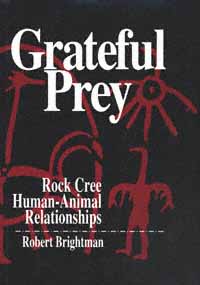 | Title: Grateful prey: Rock Cree human-animal relationships Author: Brightman, Robert Alain 1950- Published: University of California Press, 1993 Subjects: Anthropology | Anthropology | United States History | Religion Publisher's Description: The interaction between religious beliefs and hunting practices among the Asiniskawidiniwak or Rock Crees of northern Manitoba is the focus of Robert Brightman's detailed study. This foraging society, he says, bases aspects of its hunting and trapping largely on what we call "religious" conceptions.Seeking an ideology, however, that incorporates Cree beliefs about human-animal differences and the relationships that should exist between them as hunter and prey, Brightman finds these beliefs to be disordered and unstable rather than systematic. Animals are represented as simultaneously more and less powerful than humans. The hunter-prey relationship is talked about as both collaborative and adversarial. Exploring the influence of these religious representations on technical aspects of subsistence historically, Brightman finds that Crees' attitudes and actions toward animals were, and are, relatively arbitrary with respect to biological and environmental forces. Anthropologists will see in his well-researched discussion a challenge to prevailing ecological and Marxist approaches to foraging societies. [brief] Similar Items |
| 10. | 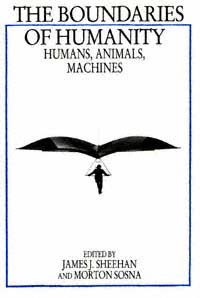 | Title: The Boundaries of humanity: humans, animals, machines Author: Sheehan, James J Published: University of California Press, 1991 Subjects: Philosophy | History and Philosophy of Science | Biology | Technology and Society Publisher's Description: To the age-old debate over what it means to be human, the relatively new fields of sociobiology and artificial intelligence bring new, if not necessarily compatible, insights. What have these two fields in common? Have they affected the way we define humanity? These and other timely questions are addressed with colorful individuality by the authors of The Boundaries of Humanity .Leading researchers in both sociobiology and artificial intelligence combine their reflections with those of philosophers, historians, and social scientists, while the editors explore the historical and contemporary contexts of the debate in their introductions. The implications of their individual arguments, and the often heated controversies generated by biological determinism or by mechanical models of mind, go to the heart of contemporary scientific, philosophical, and humanistic studies. [brief] Similar Items |
| 11. | 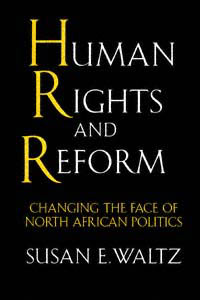 | Title: Human rights and reform: changing the face of North African politics Author: Waltz, Susan Eileen Published: University of California Press, 1995 Subjects: Politics | History | Middle Eastern Studies | Middle Eastern History | African History | African Studies Publisher's Description: Independence from colonial rule did not usher in the halcyon days many North Africans had hoped for, as the new governments in Morocco, Tunisia, and Algeria soon came to rely on repression to reinforce and maintain power. In response to widespread human rights abuses, individuals across the Maghrib began to form groups in the late 1970s to challenge the political practices and structures in the region, and over time these independent human rights organizations became prominent political actors. The activists behind them are neither saints nor revolutionaries, but political reformers intent on changing political patterns that have impeded democratization.This study, the first systematic comparative analysis of North African politics in more than a decade, explores the ability of society, including Islamist forces, to challenge the powers of states. Locating Maghribi polities within their cultural and historical contexts, Waltz traces state-society relations in the contemporary period. Even as Algeria totters at the brink of civil war and security concerns rise across the region, the human rights groups Susan Waltz examines implicitly challenge the authoritarian basis of political governance. Their efforts have not led to the democratic transition many had hoped, but human rights have become a crucial new element of North African political discourse. [brief] Similar Items |
| 12. | 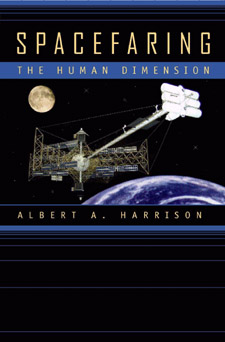 | Title: Spacefaring: the human dimension Author: Harrison, Albert A Published: University of California Press, 2001 Subjects: Science | Technology and Society | Psychology Publisher's Description: The stars have always called us, but only for the past forty years or so have we been able to respond by traveling in space. This book explores the human side of spaceflight: why people are willing to brave danger and hardship to go into space; how human culture has shaped past and present missions; and the effects of space travel on health and well-being. A comprehensive and authoritative treatment of its subject, this book combines statistical studies, rich case histories, and gripping anecdotal detail as it investigates the phenomenon of humans in space - from the earliest spaceflights to the missions of tomorrow. Drawing from a strong research base in the behavioral sciences, Harrison covers such topics as habitability, crew selection and training, coping with stress, group dynamics, accidents, and more. In addition to taking a close look at spacefarers themselves, Spacefaring reviews the broad organizational and political contexts that shape human progress toward the heavens. With the ongoing construction of the International Space Station, the human journey to the stars continues, and this book will surely help guide the way. [brief] Similar Items |
| 13. | 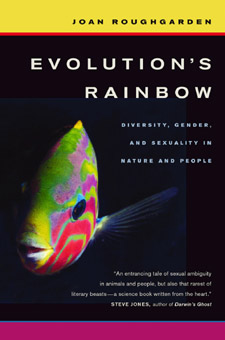 | Title: Evolution's rainbow: diversity, gender, and sexuality in nature and people Author: Roughgarden, Joan Published: University of California Press, 2004 Subjects: Gender Studies | EcologyEvolutionEnvironment | Anthropology | Evolution | Health Care | Social Problems | GayLesbian and Bisexual Studies | Social Problems Publisher's Description: In this innovative celebration of diversity and affirmation of individuality in animals and humans, Joan Roughgarden challenges accepted wisdom about gender identity and sexual orientation. A distinguished evolutionary biologist, Roughgarden takes on the medical establishment, the Bible, social science - and even Darwin himself. She leads the reader through a fascinating discussion of diversity in gender and sexuality among fish, reptiles, amphibians, birds, and mammals, including primates. Evolution's Rainbow explains how this diversity develops from the action of genes and hormones and how people come to differ from each other in all aspects of body and behavior. Roughgarden reconstructs primary science in light of feminist, gay, and transgender criticism and redefines our understanding of sex, gender, and sexuality. Witty, playful, and daring, this book will revolutionize our understanding of sexuality. Roughgarden argues that principal elements of Darwinian sexual selection theory are false and suggests a new theory that emphasizes social inclusion and control of access to resources and mating opportunity. She disputes a range of scientific and medical concepts, including Wilson's genetic determinism of behavior, evolutionary psychology, the existence of a gay gene, the role of parenting in determining gender identity, and Dawkins's "selfish gene" as the driver of natural selection. She dares social science to respect the agency and rationality of diverse people; shows that many cultures across the world and throughout history accommodate people we label today as lesbian, gay, and transgendered; and calls on the Christian religion to acknowledge the Bible's many passages endorsing diversity in gender and sexuality. Evolution's Rainbow concludes with bold recommendations for improving education in biology, psychology, and medicine; for democratizing genetic engineering and medical practice; and for building a public monument to affirm diversity as one of our nation's defining principles. [brief] Similar Items |
| 14. | 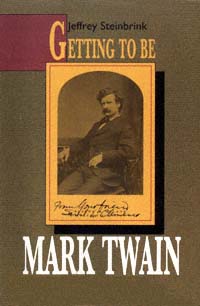 | Title: Getting to be Mark Twain Author: Steinbrink, Jeffrey Published: University of California Press, 1991 Subjects: Literature | American Literature | Literary Theory and Criticism Publisher's Description: Mark Twain is one of our most accessible cultural icons, a figure familiar to virtually every American and renowned internationally. But he was not always as we know him today. Mark Twain began life as a loose gathering of postures, attitudes, and voices in the mind of Samuel Clemens. It was some time before he took full possession of the personality the world now recognizes.This is the story of the coming of age of Mark Twain. It begins in 1867, with Clemens stepping off the steamship Quaker City and almost immediately declaring himself "in a fidget to move." It comes to a close in 1871, with Clemens settling in Hartford. Mark Twain was substantially formed during the intervening years, as Clemens came East, gained fame and fortune with the publication of Innocents Abroad , courted and married Olivia Langdon, and established himself as a professional writer. Each of these steps represented a profound change in the former Wild Humorist of the Pacific Slope as he sifted through the elements in his personality and began to assume the qualities we now associate with him. The tale that unfolds here shows how, through that process, the Mark Twain of the late 1860s became the Mark Twain of all time. [brief] Similar Items |
| 15. | 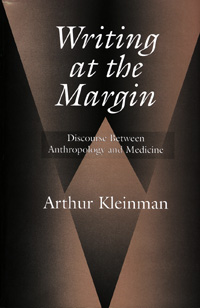 | Title: Writing at the margin: discourse between anthropology and medicine Author: Kleinman, Arthur Published: University of California Press, 1997 Subjects: Anthropology | Medical Anthropology | Sociology | Medicine | Asian Studies | Social Problems Publisher's Description: One of the most influential and creative scholars in medical anthropology takes stock of his recent intellectual odysseys in this collection of essays. Arthur Kleinman, an anthropologist and psychiatrist who has studied in Taiwan, China, and North America since 1968, draws upon his bicultural, multidisciplinary background to propose alternative strategies for thinking about how, in the postmodern world, the social and medical relate. Writing at the Margin explores the border between medical and social problems, the boundary between health and social change. Kleinman studies the body as the mediator between individual and collective experience, finding that many health problems - for example the trauma of violence or depression in the course of chronic pain - are less individual medical problems than interpersonal experiences of social suffering. He argues for an ethnographic approach to moral practice in medicine, one that embraces the infrapolitical context of illness, the responses to it, the social institutions relating to it, and the way it is configured in medical ethics.Previously published in various journals, these essays have been revised, updated, and brought together with an introduction, an essay on violence and the politics of post-traumatic stress disorder, and a new chapter that examines the contemporary ethnographic literature of medical anthropology. [brief] Similar Items |
| 16. | 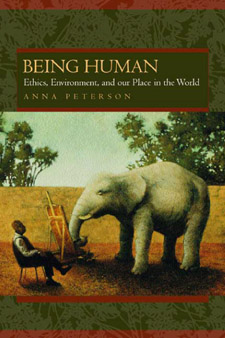 | Title: Being human: ethics, environment, and our place in the world Author: Peterson, Anna Lisa 1963- Published: University of California Press, 2001 Subjects: Religion | Folklore and Mythology | Environmental Studies | Philosophy Publisher's Description: Being Human examines the complex connections among conceptions of human nature, attitudes toward non-human nature, and ethics. Anna Peterson proposes an "ethical anthropology" that examines how ideas of nature and humanity are bound together in ways that shape the very foundations of cultures. Peterson discusses mainstream Western understandings of what it means to be human, as well as alternatives to these perspectives, and suggests that the construction of a compelling, coherent environmental ethics will revise our ideas not only about nature but also about what it means to be human. [brief] Similar Items |
| 17. | 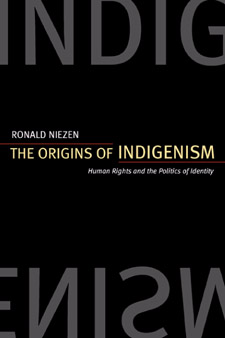 | Title: The origins of indigenism: human rights and the politics of identity Author: Niezen, Ronald Published: University of California Press, 2003 Subjects: Anthropology | Ethnic Studies | International Relations | Social Problems Publisher's Description: "International indigenism" may sound like a contradiction in terms, but it is indeed a global phenomenon and a growing form of activism. In his fluent and accessible narrative, Ronald Niezen examines the ways the relatively recent emergence of an internationally recognized identity - "indigenous peoples" - intersects with another relatively recent international movement - the development of universal human rights laws and principles. This movement makes use of human rights instruments and the international organizations of states to resist the political, cultural, and economic incursions of individual states. The concept "indigenous peoples" gained currency in the social reform efforts of the International Labor Organization in the 1950s, was taken up by indigenous nongovernmental organizations, and is now fully integrated into human rights initiatives and international organizations. Those who today call themselves indigenous peoples share significant similarities in their colonial and postcolonial experiences, such as loss of land and subsistence, abrogation of treaties, and the imposition of psychologically and socially destructive assimilation policies. Niezen shows how, from a new position of legitimacy and influence, they are striving for greater recognition of collective rights, in particular their rights to self-determination in international law. These efforts are influencing local politics in turn and encouraging more ambitious goals of autonomy in indigenous communities worldwide. [brief] Similar Items |
| 18. | 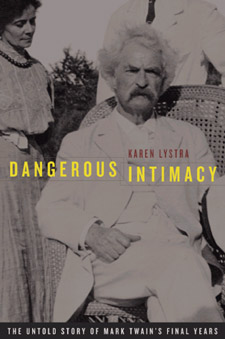 | Title: Dangerous intimacy: the untold story of Mark Twain's final years Author: Lystra, Karen Published: University of California Press, 2004 Subjects: Literature | Autobiographies and Biographies | Twain | American Literature | American Studies Publisher's Description: The last phase of Mark Twain's life is sadly familiar: Crippled by losses and tragedies, America's greatest humorist sank into a deep and bitter depression. It is also wrong. This book recovers Twain's final years as they really were - lived in the shadow of deception and prejudice, but also in the light of the author's unflagging energy and enthusiasm. Dangerous Intimacy relates the story of how, shortly after his wife's death in 1904, Twain basked in the attentions of Isabel Lyon, his flirtatious - and calculating - secretary. Lyon desperately wanted to marry her boss, who was almost thirty years her senior. She managed to exile Twain's youngest daughter, Jean, who had epilepsy. With the help of Twain's assistant, Ralph Ashcroft, who fraudulently acquired power of attorney over the author's finances, Lyon nearly succeeded in assuming complete control over Twain's life and estate. Fortunately, Twain recognized the plot being woven around him just in time. So rife with twists and turns as to defy belief, the story nonetheless comes to undeniable, vibrant life in the letters and diaries of those who witnessed it firsthand: Katy the housekeeper, Jean, Lyon, and others whose own distinctive, perceptive, often amusing voices take us straight into the heart of the Clemens household. Just as Twain extricated himself from the lies, prejudice, and self-delusion that almost turned him into an American Lear, so Karen Lystra liberates the author's last decade from a century of popular misunderstanding. In this gripping book we at last see how, late in life, this American icon discovered a deep kinship with his youngest child and continued to explore the precarious balance of love and pain that is one of the trademarks of his work. [brief] Similar Items |
| 19. | 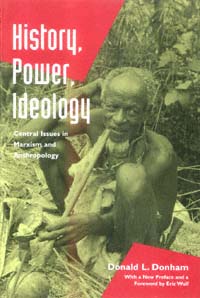 | Title: History, power, ideology: central issues in Marxism and anthropology Author: Donham, Donald L. (Donald Lewis) Published: University of California Press, 1999 Subjects: Anthropology | Social Theory | African Studies Publisher's Description: Is Marxism a reflection of the conceptual system it fights against, rather than a truly comprehensive approach to human history? Drawing on recent work in anthropology, history, and philosophy, Donald Donham confronts this problem in analyzing a radically different social order: the former Maale kingdom of southern Ethiopia."Every once in a while there appears a book that . . . opens up new ways of inquiring into the ways of the world. Donald Donham has written such a book. The style is quiet and judicious, but the effect is stunning. . . . In putting inherited partisan approaches to the test of explaining the realities of Maale society and culture, Donham enriches anthropology and imparts new vigor to the analytical Marxian traditions. History, Power, Ideology embodies a major accomplishment." - From the Foreword [brief] Similar Items |
| 20. | 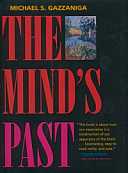 | Title: The mind's past Author: Gazzaniga, Michael S Published: University of California Press, 1998 Subjects: Science | Psychology | Cognitive Science | Neuroscience Publisher's Description: Why does the human brain insist on interpreting the world and constructing a narrative? In this ground-breaking work, Michael S. Gazzaniga, one of the world's foremost cognitive neuroscientists, shows how our mind and brain accomplish the amazing feat of constructing our past - a process clearly fraught with errors of perception, memory, and judgment. By showing that the specific systems built into our brain do their work automatically and largely outside of our conscious awareness, Gazzaniga calls into question our everyday notions of self and reality. The implications of his ideas reach deeply into the nature of perception and memory, the profundity of human instinct, and the ways we construct who we are and how we fit into the world around us.Over the past thirty years, the mind sciences have developed a picture not only of how our brains are built but also of what they were built to do. The emerging picture is wonderfully clear and pointed, underlining William James's notion that humans have far more instincts than other animals. Every baby is born with circuits that compute information enabling it to function in the physical world. Even what helps us to establish our understanding of social relations may have grown out of perceptual laws delivered to an infant's brain. Indeed, the ability to transmit culture - an act that is only part of the human repertoire - may stem from our many automatic and unique perceptual-motor processes that give rise to mental capacities such as belief and culture.Gazzaniga explains how the mind interprets data the brain has already processed, making "us" the last to know. He shows how what "we" see is frequently an illusion and not at all what our brain is perceiving. False memories become a part of our experience; autobiography is fiction. In exploring how the brain enables the mind, Gazzaniga points us toward one of the greatest mysteries of human evolution: how we become who we are. [brief] Similar Items |